 Calculate or lookup network addresses easily. Supports CSV file formats for network information lists.
Calculate or lookup network addresses easily. Supports CSV file formats for network information lists.
 A simple console frontend to iwconfig/iw
A simple console frontend to iwconfig/iw
 This Public Domain console program speaks the ebooks and is controlled via the keyboard to make it handy for the vision accessibility. Fast and simple. Supported formats: TXT, EPUB, FB2, ABW, [X]HTML, ODT, DOCX. Uses Speech Dispatcher to speak, so you can use synths such as RHVoice, Festival, espeak-ng, etc.
This Public Domain console program speaks the ebooks and is controlled via the keyboard to make it handy for the vision accessibility. Fast and simple. Supported formats: TXT, EPUB, FB2, ABW, [X]HTML, ODT, DOCX. Uses Speech Dispatcher to speak, so you can use synths such as RHVoice, Festival, espeak-ng, etc.
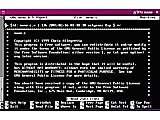 GNU nano is a console text editor, modeled after Pico. It is very newcomer-friendly due to on-screen menus with always visible keyboard shortcuts. Keybindings are configurable, and full undo and redo actions are supported. Nano can even be used as STDIN pager, and it provides fast syntax highlighting using regular expressions.
GNU nano is a console text editor, modeled after Pico. It is very newcomer-friendly due to on-screen menus with always visible keyboard shortcuts. Keybindings are configurable, and full undo and redo actions are supported. Nano can even be used as STDIN pager, and it provides fast syntax highlighting using regular expressions.
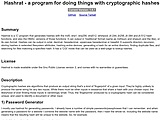 Hashrat is a command-line utility that hashes things using md5, sha1/256/512, whirlpool and jh hash algorithms. It's written in C with few dependancies (basically just the standard C library). It can read input from standard in and hash it, either as a complete file, or line-by-line. It can recursively hash files on disk, either outputing hashes to stdout, or storing them in filesystem attributes, or in a memcached server. It can check files against a list of hashes supplied on stdin, or in t
Hashrat is a command-line utility that hashes things using md5, sha1/256/512, whirlpool and jh hash algorithms. It's written in C with few dependancies (basically just the standard C library). It can read input from standard in and hash it, either as a complete file, or line-by-line. It can recursively hash files on disk, either outputing hashes to stdout, or storing them in filesystem attributes, or in a memcached server. It can check files against a list of hashes supplied on stdin, or in t
 Drawj2d creates technical line drawings using a descriptive language. It writes pdf, svg, eps and emf vector graphics or png images. It runs on all platforms that run Java. It is inspired by Asymptote but with a tcl-like syntax and 2D only.
Drawj2d creates technical line drawings using a descriptive language. It writes pdf, svg, eps and emf vector graphics or png images. It runs on all platforms that run Java. It is inspired by Asymptote but with a tcl-like syntax and 2D only.
 AMP is a console text-editor, written in Rust and lightweight. Implements mode-based keyboard interface, similar to VIM. Comes with file management and a few IDE capabilities. Avoids over-configurability, but allows YAML-based key mapping for e.g. macros.
AMP is a console text-editor, written in Rust and lightweight. Implements mode-based keyboard interface, similar to VIM. Comes with file management and a few IDE capabilities. Avoids over-configurability, but allows YAML-based key mapping for e.g. macros.
 FINAL CUT is a C++ class library and widget toolkit that enables developers to create text-based user interfaces. FINAL CUT is a standalone library that interacts directly with the terminal without relying on external libraries such as ncurses or termbox. FINAL CUT provides full mouse support, UTF-8 character encoding, full-width character support, and the ability to display combined Unicode characters. The library helps the programmer to create a text console application. It allows handling mu
FINAL CUT is a C++ class library and widget toolkit that enables developers to create text-based user interfaces. FINAL CUT is a standalone library that interacts directly with the terminal without relying on external libraries such as ncurses or termbox. FINAL CUT provides full mouse support, UTF-8 character encoding, full-width character support, and the ability to display combined Unicode characters. The library helps the programmer to create a text console application. It allows handling mu
 Tomb is a system to make strong encryption easy for everyday use. A tomb is like a locked folder that can be safely transported and hidden in a filesystem. Its keys can be kept separate; for example, you can keep the tomb on your computer and its key on a USB stick. Tomb is written in code that is easy to review and links shared components: it consists of a ZShell script and desktop integration apps; it uses standard GNU tools and the crypto API of the Linux kernel (dm-crypt) via cryptsetup.
Tomb is a system to make strong encryption easy for everyday use. A tomb is like a locked folder that can be safely transported and hidden in a filesystem. Its keys can be kept separate; for example, you can keep the tomb on your computer and its key on a USB stick. Tomb is written in code that is easy to review and links shared components: it consists of a ZShell script and desktop integration apps; it uses standard GNU tools and the crypto API of the Linux kernel (dm-crypt) via cryptsetup.
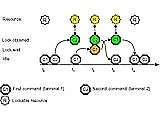 FLoM is a tool for synchronizing shell commands and avoiding complex workarounds. It manages process serialization not unlike "nice" handles their prioritization. It allows shell commands to be serialized and synchronized within a single system or a network. It requires little configuration to easily handle common settings.
FLoM is a tool for synchronizing shell commands and avoiding complex workarounds. It manages process serialization not unlike "nice" handles their prioritization. It allows shell commands to be serialized and synchronized within a single system or a network. It requires little configuration to easily handle common settings.
 Crayonizer can color the output of command-line programs. It can also translate keypresses to something the program understands, play sounds, set xterm titlebars, iconify/deiconify/maximize xterm windows, set xterm fonts or foreground color or background color, add various types of statusbar, etc, etc.
Crayonizer can color the output of command-line programs. It can also translate keypresses to something the program understands, play sounds, set xterm titlebars, iconify/deiconify/maximize xterm windows, set xterm fonts or foreground color or background color, add various types of statusbar, etc, etc.
 ani-cli is a cli to browse and watch anime (alone AND with friends).
ani-cli is a cli to browse and watch anime (alone AND with friends).
 Anweddol is a open-source client/server system providing temporary, SSH-controllable virtual machines to enhance anonymity online. It’s usefulness comes when someone wants to use a fully functional computer while being exposed to less dangers by using it remotely on a dedicated server, and by destroying it after use. The project includes the client and server implementation. Check out the website for more : https://the-anweddol-project.github.io/
Anweddol is a open-source client/server system providing temporary, SSH-controllable virtual machines to enhance anonymity online. It’s usefulness comes when someone wants to use a fully functional computer while being exposed to less dangers by using it remotely on a dedicated server, and by destroying it after use. The project includes the client and server implementation. Check out the website for more : https://the-anweddol-project.github.io/
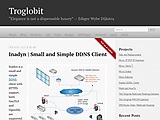 Inadyn is a small and simple DDNS client with HTTPS support, both GnuTLS and OpenSSL are supported. Inadyn is commonly available in many GNU/Linux distributions, used in off-the-shelf routers and Internet gateways to automate the task of keeping your DNS record up to date with any IP address changes from your ISP. It can also be used in installations with redundant (backup) connections to the Internet.
Inadyn is a small and simple DDNS client with HTTPS support, both GnuTLS and OpenSSL are supported. Inadyn is commonly available in many GNU/Linux distributions, used in off-the-shelf routers and Internet gateways to automate the task of keeping your DNS record up to date with any IP address changes from your ISP. It can also be used in installations with redundant (backup) connections to the Internet.
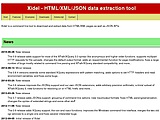 Xidel is a command line tool to download web pages or JSON-APIs and extract data from them. It can download files over HTTP/S connections, follow redirections, links, (partially) filled-in forms, extracted values, and process local files. The data can be extracted using XPath 2.0, XQuery 1.0, XPath/XQuery 3.0 and JSONiq expressions, CSS 3 selectors, and custom, pattern-matching templates that are like an annotated version of the processed page. The extracted values can then be exported as plain
Xidel is a command line tool to download web pages or JSON-APIs and extract data from them. It can download files over HTTP/S connections, follow redirections, links, (partially) filled-in forms, extracted values, and process local files. The data can be extracted using XPath 2.0, XQuery 1.0, XPath/XQuery 3.0 and JSONiq expressions, CSS 3 selectors, and custom, pattern-matching templates that are like an annotated version of the processed page. The extracted values can then be exported as plain
 mtag is the command-line tool for media files tagging. It can use the text file template to tag the multiply sets of media files. You can apply the same template for Ogg, MP3, and FLAC album versions.
mtag is the command-line tool for media files tagging. It can use the text file template to tag the multiply sets of media files. You can apply the same template for Ogg, MP3, and FLAC album versions.
 git-assembler can perform automatic merge and rebase operations following a simple declarative script. Like “make”, for branches. It can be used to follow remote branches (such as pull requests) conveniently, test multiple patches together, work on interdependent feature branches more easily, and so on…
git-assembler can perform automatic merge and rebase operations following a simple declarative script. Like “make”, for branches. It can be used to follow remote branches (such as pull requests) conveniently, test multiple patches together, work on interdependent feature branches more easily, and so on…
 Logfilegen is a fast and highly customizable tool to generate common server (nginx, etc) or user-defined format log files to make fake workloads for data ingest or analytics programs. You can generate log file with the desired rate (lines per second), the file size, lines count and the duration. Each variable of the log file can be redefined by the random or static value. logfilegen depends just on GCC or Clang with C++11 support, and, optionally, cmake.
Logfilegen is a fast and highly customizable tool to generate common server (nginx, etc) or user-defined format log files to make fake workloads for data ingest or analytics programs. You can generate log file with the desired rate (lines per second), the file size, lines count and the duration. Each variable of the log file can be redefined by the random or static value. logfilegen depends just on GCC or Clang with C++11 support, and, optionally, cmake.
 VFU is versatile file manager covers virtually all file managing needs and offer large set of behaviour options. VFU is licensed under GPLv2.
VFU is versatile file manager covers virtually all file managing needs and offer large set of behaviour options. VFU is licensed under GPLv2.
 APCComm is a program to transfer files between an Amiga and a Linux PC using a parallel laplink cable or serial null modem cable. It's able to transfer files and whole directories.
APCComm is a program to transfer files between an Amiga and a Linux PC using a parallel laplink cable or serial null modem cable. It's able to transfer files and whole directories.
 The utility to copy file with buffer synchronize after each copying iteration. Good for copy large file to USB stick when copying is slow or stalled (and vm.dirty_bytes and vm.dirty_background_bytes settings does not help).
The utility to copy file with buffer synchronize after each copying iteration. Good for copy large file to USB stick when copying is slow or stalled (and vm.dirty_bytes and vm.dirty_background_bytes settings does not help).
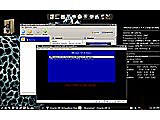 4MLinux is a small, independent, general-purpose Linux distribution with a strong focus on the following four "M" of computing: Maintenance (system rescue Live CD), Multimedia (full support for a huge number of image, audio and video formats), Miniserver (DNS, FTP, HTTP, MySQL, NFS, Proxy, SMTP, SSH, and Telnet), and Mystery (meaning a collection of classic Linux games).
4MLinux is a small, independent, general-purpose Linux distribution with a strong focus on the following four "M" of computing: Maintenance (system rescue Live CD), Multimedia (full support for a huge number of image, audio and video formats), Miniserver (DNS, FTP, HTTP, MySQL, NFS, Proxy, SMTP, SSH, and Telnet), and Mystery (meaning a collection of classic Linux games).
 "dl" is a simple file sharing service for quick/one-off file transfers. Upload a file to get a link you can share. Or create a sharing link to receive files from others. The uploaded files are automatically removed when left unused, requiring zero additional maintenance. "dl" is built for your users: easy to use with any browser, integrates smoothly with Thunderbird for large attachments, works on Android, Windows and OSX or straight from the command line for maximum convenience.
"dl" is a simple file sharing service for quick/one-off file transfers. Upload a file to get a link you can share. Or create a sharing link to receive files from others. The uploaded files are automatically removed when left unused, requiring zero additional maintenance. "dl" is built for your users: easy to use with any browser, integrates smoothly with Thunderbird for large attachments, works on Android, Windows and OSX or straight from the command line for maximum convenience.
 mlbfilt can remove one or more multi-line text blocks from the output of a command or file. It can be conveniently used as an error filter. mlbfilt is geared towards usage within interactive shell sessions by handling colorized output sensibly, flushing as soon as possible and being able to handle multiple large patterns efficiently.
mlbfilt can remove one or more multi-line text blocks from the output of a command or file. It can be conveniently used as an error filter. mlbfilt is geared towards usage within interactive shell sessions by handling colorized output sensibly, flushing as soon as possible and being able to handle multiple large patterns efficiently.
 A CLI tool to convert CSV/Excel/HTML/JSON/LTSV/Markdown/TSV/Google-Sheets to a SQLite database file. - Create a SQLite database file from: - File(s): - CSV - Microsoft Excel :superscript:`TM` - HTML - JSON - Labeled Tab-separated Values (LTSV) - Markdown - Tab separated values (TSV) - Google Sheets - URL (scrape data from web pages) - Multi-byte character support
A CLI tool to convert CSV/Excel/HTML/JSON/LTSV/Markdown/TSV/Google-Sheets to a SQLite database file. - Create a SQLite database file from: - File(s): - CSV - Microsoft Excel :superscript:`TM` - HTML - JSON - Labeled Tab-separated Values (LTSV) - Markdown - Tab separated values (TSV) - Google Sheets - URL (scrape data from web pages) - Multi-byte character support
 Powerful terminal utility that allows you to use words coming from the standard input to create a nice selection window just below the cursor. Once done, your selection will be sent to standard output.
Powerful terminal utility that allows you to use words coming from the standard input to create a nice selection window just below the cursor. Once done, your selection will be sent to standard output.
 sievemgr is a command-line client for managing Sieve scripts on remote servers via the ManageSieve Protocol (RFC 5804). Given valid credentials, sievemgr can be invoked non-interactively in order to retrieve a list of all scripts, retrieve the scripts themselves, publish scripts on the a server, or delete them. Furthermore, it can be used to change the active script and to display information about the server.
sievemgr is a command-line client for managing Sieve scripts on remote servers via the ManageSieve Protocol (RFC 5804). Given valid credentials, sievemgr can be invoked non-interactively in order to retrieve a list of all scripts, retrieve the scripts themselves, publish scripts on the a server, or delete them. Furthermore, it can be used to change the active script and to display information about the server.
 Knocker is a simple and easy to use TCP security port scanner written in C to analyze hosts and all of the different services started on them. It is available for Linux, FreeBSD, HP-UX, and Windows9x/2000/NT and it is licensed under the GNU General Public License GPL
Knocker is a simple and easy to use TCP security port scanner written in C to analyze hosts and all of the different services started on them. It is available for Linux, FreeBSD, HP-UX, and Windows9x/2000/NT and it is licensed under the GNU General Public License GPL
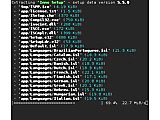 Inno Setup is a tool to create installers for Microsoft Windows applications. innoextract allows to extract such installers under non-windows systems without running the actual installer using Wine. innoextract currently supports installers created by Inno Setup 1.2.10 to 6.0.2. In addition to standard Inno Setup installers, innoextract also supports some modified Inno Setup variants including Martijn Laan's My Inno Setup Extensions 1.3.10 to 3.0.6.1 as well as GOG.com's Inno Setup-based game i
Inno Setup is a tool to create installers for Microsoft Windows applications. innoextract allows to extract such installers under non-windows systems without running the actual installer using Wine. innoextract currently supports installers created by Inno Setup 1.2.10 to 6.0.2. In addition to standard Inno Setup installers, innoextract also supports some modified Inno Setup variants including Martijn Laan's My Inno Setup Extensions 1.3.10 to 3.0.6.1 as well as GOG.com's Inno Setup-based game i
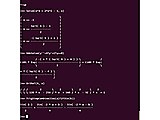 Yacas is an easy to use, general purpose Computer Algebra System, a program for symbolic manipulation of mathematical expressions. It uses its own programming language designed for symbolic as well as arbitrary-precision numerical computations. The system has a library of scripts that implement many of the symbolic algebra operations; new algorithms can be easily added to the library.
Yacas is an easy to use, general purpose Computer Algebra System, a program for symbolic manipulation of mathematical expressions. It uses its own programming language designed for symbolic as well as arbitrary-precision numerical computations. The system has a library of scripts that implement many of the symbolic algebra operations; new algorithms can be easily added to the library.
 This utility has been written for two purposes: for making high availability clusters; for making backups of them. Consider it a better and faster lsyncd written in C.
This utility has been written for two purposes: for making high availability clusters; for making backups of them. Consider it a better and faster lsyncd written in C.
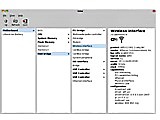 lshw (HardWare LiSter) is a small tool for Linux to provide detailed information on the hardware configuration of the machine. It can report exact memory configuration, firmware version, mainboard configuration, CPU version and speed, cache configuration, bus speed, etc.
lshw (HardWare LiSter) is a small tool for Linux to provide detailed information on the hardware configuration of the machine. It can report exact memory configuration, firmware version, mainboard configuration, CPU version and speed, cache configuration, bus speed, etc.
 dte is a small and easy to use console text editor. Colors and bindings can be fully customized to your liking. It has some features useful to programmers, like ctags support and it can parse compiler errors, but it does not aim to become an IDE.
dte is a small and easy to use console text editor. Colors and bindings can be fully customized to your liking. It has some features useful to programmers, like ctags support and it can parse compiler errors, but it does not aim to become an IDE.
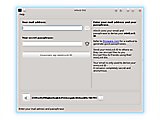 MikroLock reads and writes encrypted miniLock files. It is a fast native implementation of the open minilock file format. Despite its name (and in contrast to the original implementation), it can also handle big files. Information about the cryptographic details: https://minilock.io.
MikroLock reads and writes encrypted miniLock files. It is a fast native implementation of the open minilock file format. Despite its name (and in contrast to the original implementation), it can also handle big files. Information about the cryptographic details: https://minilock.io.
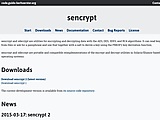 sencrypt and sdecrypt are utilities for encrypting and decrypting data with the AES, DES, 3DES, and RC4 algorithms. It can read keys from files or ask for a passphrase and use that together with a salt to derive a key using the PBKDF2 key derivation function. sencrypt and sdecrypt are portable and compatible reimplementations of the encrypt and decrypt utilities in Solaris/Illumos-based operating systems.
sencrypt and sdecrypt are utilities for encrypting and decrypting data with the AES, DES, 3DES, and RC4 algorithms. It can read keys from files or ask for a passphrase and use that together with a salt to derive a key using the PBKDF2 key derivation function. sencrypt and sdecrypt are portable and compatible reimplementations of the encrypt and decrypt utilities in Solaris/Illumos-based operating systems.
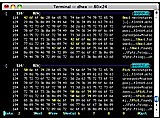 DHEX is a more than just another hex editor: It includes a diff mode, which can be used to easily and conveniently compare two binary files. Since it is based on ncurses and is themeable, it can run on any number of systems and scenarios. With its utilization of search logs, it is possible to track changes in different iterations of files easily.
DHEX is a more than just another hex editor: It includes a diff mode, which can be used to easily and conveniently compare two binary files. Since it is based on ncurses and is themeable, it can run on any number of systems and scenarios. With its utilization of search logs, it is possible to track changes in different iterations of files easily.
 Mercurial is a free, distributed source control management tool. It's lightweight and efficiently handles projects of any size with an easy and intuitive interface.
Mercurial is a free, distributed source control management tool. It's lightweight and efficiently handles projects of any size with an easy and intuitive interface.
 This is a program for real-time rectangle detection from an image. This program detects *ALL* rectangular shapes viewed from a 3D perspective in real time, utilizing a GPU. The program is purely rule-based.
This is a program for real-time rectangle detection from an image. This program detects *ALL* rectangular shapes viewed from a 3D perspective in real time, utilizing a GPU. The program is purely rule-based.
 Harvest is a compact, fast and portable software that can scan files and folders to recognise their typology. Scanning is based on file extensions and a simple fuzzy logic analysis of folder contents to recognise if they are related to video, audio or text materials. Harvest makes it easy to list folders by type or year, to move them or to categorize them for tagged filesystems. It can process approximately 1GB of stored files per second and is operated from the console terminal. Harvest is de
Harvest is a compact, fast and portable software that can scan files and folders to recognise their typology. Scanning is based on file extensions and a simple fuzzy logic analysis of folder contents to recognise if they are related to video, audio or text materials. Harvest makes it easy to list folders by type or year, to move them or to categorize them for tagged filesystems. It can process approximately 1GB of stored files per second and is operated from the console terminal. Harvest is de
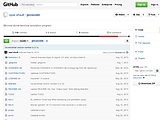 Picocom is a minimal dumb-terminal emulation program. It is, in principle, very much like minicom, only it's "pico" instead of "mini"! It was designed to serve as a simple, manual, modem configuration, testing, and debugging tool. It has also served (quite well) as a low-tech serial communications program to allow access to all types of devices that provide serial consoles. It could also prove useful in many other similar tasks. It is ideal for embedded systems since its memory footprint is mi
Picocom is a minimal dumb-terminal emulation program. It is, in principle, very much like minicom, only it's "pico" instead of "mini"! It was designed to serve as a simple, manual, modem configuration, testing, and debugging tool. It has also served (quite well) as a low-tech serial communications program to allow access to all types of devices that provide serial consoles. It could also prove useful in many other similar tasks. It is ideal for embedded systems since its memory footprint is mi
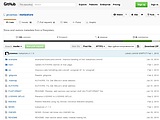 metastore is a tool to store the metadata of files/directories/links in a file tree to a separate file and to later compare and apply the stored metadata to said file tree. It was originally written as a supplement to git, which does not store all metadata, making it unsuitable for e.g. storing /etc in a repository. metastore can also be helpful if you want to create a tarball of a file tree and make sure that "everything" (e.g. xattrs, mtime, owner, group) is stored along with the files.
metastore is a tool to store the metadata of files/directories/links in a file tree to a separate file and to later compare and apply the stored metadata to said file tree. It was originally written as a supplement to git, which does not store all metadata, making it unsuitable for e.g. storing /etc in a repository. metastore can also be helpful if you want to create a tarball of a file tree and make sure that "everything" (e.g. xattrs, mtime, owner, group) is stored along with the files.
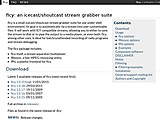 fIcy is a small icecast/shoutcast stream grabber suite for use under shell environment. Its goal is to automatically rip a stream into user customisable files. It will work with ICY compatible streams, allowing you to either to save the stream to disk or to pipe the output to a media player, or even both. fIcy, among other uses, is ideal for batch/unattended recording of radio programs and stream debugging.
fIcy is a small icecast/shoutcast stream grabber suite for use under shell environment. Its goal is to automatically rip a stream into user customisable files. It will work with ICY compatible streams, allowing you to either to save the stream to disk or to pipe the output to a media player, or even both. fIcy, among other uses, is ideal for batch/unattended recording of radio programs and stream debugging.
 MP3Blaster is a text console based program for playing mainly mp3 audio files. It is very interactive, and has a great list of features. Its playlist can be divided in albums or categories (called 'groups'), which allows for very sophisticated playback orders.
MP3Blaster is a text console based program for playing mainly mp3 audio files. It is very interactive, and has a great list of features. Its playlist can be divided in albums or categories (called 'groups'), which allows for very sophisticated playback orders.
 Naamari is AES&SHA-based crypto-synchronizer for cloud/remote file storage, with cryptographic and transport modules being separate applications. It works with 4 locations. 1st: local dir with original files. 2nd: dir containing folder structure and names of files placed into storage (but not content). 3rd & 4th - storages: local (another local dir) and remote (say, a cloud). In storages, there are no folders, files have pseudo-random names and encrypted content ("flattening"). The main module
Naamari is AES&SHA-based crypto-synchronizer for cloud/remote file storage, with cryptographic and transport modules being separate applications. It works with 4 locations. 1st: local dir with original files. 2nd: dir containing folder structure and names of files placed into storage (but not content). 3rd & 4th - storages: local (another local dir) and remote (say, a cloud). In storages, there are no folders, files have pseudo-random names and encrypted content ("flattening"). The main module
 top-like cli interface for container monitoring
top-like cli interface for container monitoring
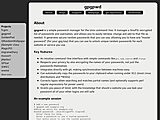 gpgpwd is a terminal-based password manager. It stores a list of passwords and their associated usernames in a GnuPG-encrypted file, and allows you to easily retrieve, change, and add to that file as needed. It also generates random passwords which you can use, easily allowing you to have one "master password" (for your gpg key), with one unique and random password for each website or service you use, ensuring that your other accounts stay safe even if one password gets leaked. gpgpwd can als
gpgpwd is a terminal-based password manager. It stores a list of passwords and their associated usernames in a GnuPG-encrypted file, and allows you to easily retrieve, change, and add to that file as needed. It also generates random passwords which you can use, easily allowing you to have one "master password" (for your gpg key), with one unique and random password for each website or service you use, ensuring that your other accounts stay safe even if one password gets leaked. gpgpwd can als
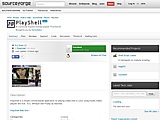 PlayShell is a simple console-based application for playing media files in Linux using known media players like SoX, VLC, MPlayer and FFplay as backend.
PlayShell is a simple console-based application for playing media files in Linux using known media players like SoX, VLC, MPlayer and FFplay as backend.
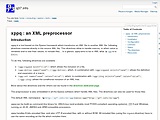 xppq is a command-line tool which transforms an XML file to another XML file, following directives inserted directly in the source XML file. This directives allow to handle macros, to affect value to variables and to test their values, to include files… In a glance, xppq aims to be to XML what cpp is to C/C++. It is developed in C++, and uses only system and C/C++ standard libraries, so it doesn't need third party components. It can run on GNU/Linux (and probably most POSIX-compliant operating s
xppq is a command-line tool which transforms an XML file to another XML file, following directives inserted directly in the source XML file. This directives allow to handle macros, to affect value to variables and to test their values, to include files… In a glance, xppq aims to be to XML what cpp is to C/C++. It is developed in C++, and uses only system and C/C++ standard libraries, so it doesn't need third party components. It can run on GNU/Linux (and probably most POSIX-compliant operating s
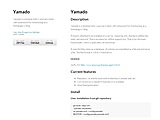 Yamado is a minimal note & journal system with extensions for functioning as a homepage & blog. Forget about databases, additional frameworks and the rest. Primarily intended to be installed on a server, requiring only standard utilities like bash, sed and awk. It uses the file system as a database. All articles are submitted as a file and stored as a file. The file format is YAML + Markdown.
Yamado is a minimal note & journal system with extensions for functioning as a homepage & blog. Forget about databases, additional frameworks and the rest. Primarily intended to be installed on a server, requiring only standard utilities like bash, sed and awk. It uses the file system as a database. All articles are submitted as a file and stored as a file. The file format is YAML + Markdown.
 mmu2html is a tool to convert text files with mixed markup and html code into html files. It can be used for static website generation. It has been designed with asciidoc in mind, but with additional support for menu creation, file linking, and other web site specific features.
mmu2html is a tool to convert text files with mixed markup and html code into html files. It can be used for static website generation. It has been designed with asciidoc in mind, but with additional support for menu creation, file linking, and other web site specific features.
 Rotcelloc is an application that manages your movie, TV-series and games collection. It takes CSV-files, or a Steam username, as its input, and outputs JSON files and a static web application that can be used to view and search a collection. Rotcelloc will download posters for your collection, download metadata (plot summary, developer or director name, metascore) and generate a pretty (static) web application that can be used to view, search, filter and sort your collection in many ways. All f
Rotcelloc is an application that manages your movie, TV-series and games collection. It takes CSV-files, or a Steam username, as its input, and outputs JSON files and a static web application that can be used to view and search a collection. Rotcelloc will download posters for your collection, download metadata (plot summary, developer or director name, metascore) and generate a pretty (static) web application that can be used to view, search, filter and sort your collection in many ways. All f
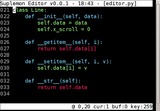 Suplemon is a modern, slick and intuitive console text editor with multi cursor support. Suplemon replicates Sublime Text style functionality in the terminal with the ease of use of Nano.
Suplemon is a modern, slick and intuitive console text editor with multi cursor support. Suplemon replicates Sublime Text style functionality in the terminal with the ease of use of Nano.
 Launch commands, one drop at time. The purpose of OcLaunch is to easily launch command one by one. Since it's a command-line tool, you can use it almost everything, from GUI to CRON task. What is it? OcLaunch: Command-line program allowing you to launch program on a human basis. Don't let a clock plan things! For example, here is a typical session (you open a terminal emulator between each item): You open your first terminal, your chat client is opened, On second launch of a termina
Launch commands, one drop at time. The purpose of OcLaunch is to easily launch command one by one. Since it's a command-line tool, you can use it almost everything, from GUI to CRON task. What is it? OcLaunch: Command-line program allowing you to launch program on a human basis. Don't let a clock plan things! For example, here is a typical session (you open a terminal emulator between each item): You open your first terminal, your chat client is opened, On second launch of a termina
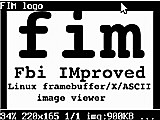 FIM is a lightweight universal image viewer, mostly for Linux. It is highly customizable and scriptable, and for users who are comfortable with software like the VIM text editor or the Mutt mail user agent. You can control it using the keyboard. FIM can open many file formats (even using converters) and it can display pictures graphically, with the Linux framebuffer or under X/Xorg, or in a terminal as ASCII Art renderings.
FIM is a lightweight universal image viewer, mostly for Linux. It is highly customizable and scriptable, and for users who are comfortable with software like the VIM text editor or the Mutt mail user agent. You can control it using the keyboard. FIM can open many file formats (even using converters) and it can display pictures graphically, with the Linux framebuffer or under X/Xorg, or in a terminal as ASCII Art renderings.
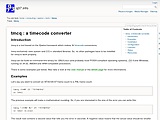 tmcq is a command-line tool which makes timecode conversions. It is developed in C++, and uses only system and C/C++ standard libraries, so it doesn't need third party components. It can run on GNU/Linux (and probably most POSIX-compliant operating systems), OS X and Windows, natively on IA-32, AMD64 and ARM architectures.
tmcq is a command-line tool which makes timecode conversions. It is developed in C++, and uses only system and C/C++ standard libraries, so it doesn't need third party components. It can run on GNU/Linux (and probably most POSIX-compliant operating systems), OS X and Windows, natively on IA-32, AMD64 and ARM architectures.
 A utility to read the contents of the Postfix mail queue and filter according to arguments provided. Loosely based on the command exiqgrep which provides similar functionality for the exim mail server.
A utility to read the contents of the Postfix mail queue and filter according to arguments provided. Loosely based on the command exiqgrep which provides similar functionality for the exim mail server.
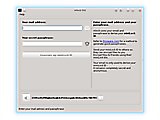 mlock reads and writes encrypted miniLock files. It is a fast native implementation of the minilock file format. Despite its name (and in contrast to the original implementation), it can also handle big files. Information about the cryptographic details: https://minilock.io.
mlock reads and writes encrypted miniLock files. It is a fast native implementation of the minilock file format. Despite its name (and in contrast to the original implementation), it can also handle big files. Information about the cryptographic details: https://minilock.io.
 ppip is a reimplementation of the venerable CP/M utility PIP - Peripheral Interchange Program
ppip is a reimplementation of the venerable CP/M utility PIP - Peripheral Interchange Program
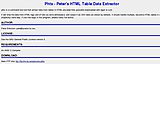 A small Unix command line tool that can be used to extract data from tables in a HTML-encoded text file. Outputs the (stripped from other HTML tags and (possible whitespace) data as a CSV-formatted file/on stdout. Should handle recursive tables and the most common incorrect HTML errors (missing
A small Unix command line tool that can be used to extract data from tables in a HTML-encoded text file. Outputs the (stripped from other HTML tags and (possible whitespace) data as a CSV-formatted file/on stdout. Should handle recursive tables and the most common incorrect HTML errors (missing | , or
tags.